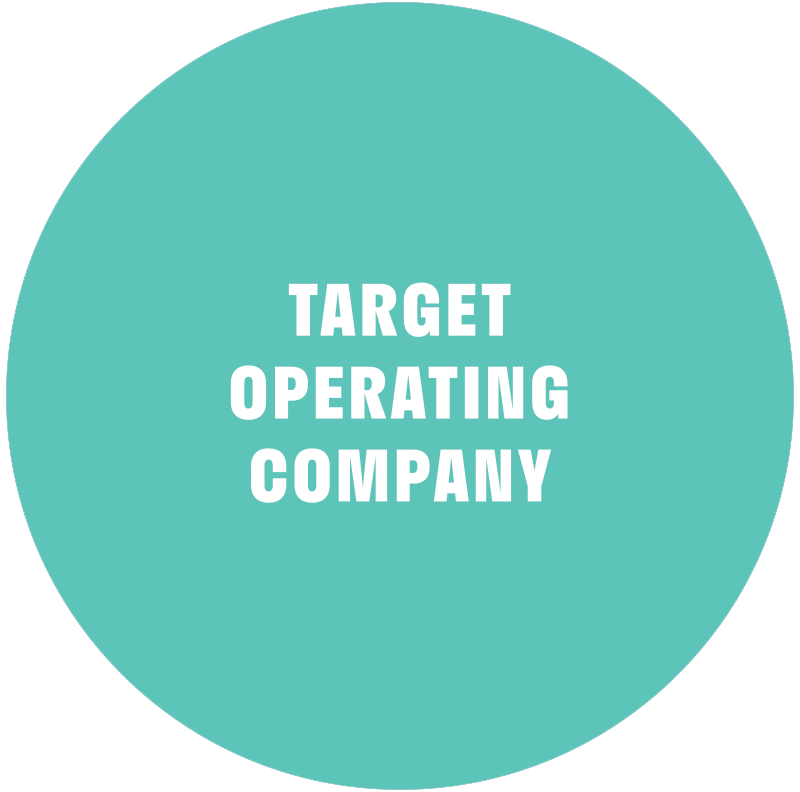SPAC Master

A pivotal moment of rejection in the summer of ’66 would inspire her to trailblaze a path in business, finance and law. Cohen was concluding her term as a summer associate at a big law firm, where she had excelled. She remembers sitting in the hiring partner’s office. “He looked three shades of green and said to me that … our senior partner says he’s not ready to have a woman work at the law firm as a professional,” Cohen said. “I was simply astounded. It had never occurred to me that such a thing could happen to me, so I just looked at him and said, ‘I think it’s your loss.’ And I walked out.”
While it’s not a particularly fond memory for Cohen, the experience taught her an invaluable lesson: “I really determined at that moment that … I really would do better not working for somebody else that could make decisions on my behalf, so I didn’t. And I never have.”
SPAC Master

A pivotal moment of rejection in the summer of ’66 would inspire her to trailblaze a path in business, finance and law. Cohen was concluding her term as a summer associate at a big law firm, where she had excelled. She remembers sitting in the hiring partner’s office. “He looked three shades of green and said to me that … our senior partner says he’s not ready to have a woman work at the law firm as a professional,” Cohen said. “I was simply astounded. It had never occurred to me that such a thing could happen to me, so I just looked at him and said, ‘I think it’s your loss.’ And I walked out.”
While it’s not a particularly fond memory for Cohen, the experience taught her an invaluable lesson: “I really determined at that moment that … I really would do better not working for somebody else that could make decisions on my behalf, so I didn’t. And I never have.”
Then she noticed that Pennsylvania had not granted a new charter for a bank in the past decade, which she considered a hole in the market.
“There were a number of so-called ‘women’s banks’ that were begun, and I didn’t think that was a good idea, I thought women were people,” she said. “So I decided that a path to participate in the banking field as a business would be to start my own bank.”
In 1974, she became Pennsylvania’s first female CEO of a bank after opening Jefferson Bank. By the time she sold it to Hudson United Bancorp in 1999, it had become the Philadelphia region’s largest local bank.
Cohen realizes her straightforward methods are unusual, and attests her children have informed her, for better or worse, that she doesn’t “think like other people.”

And in filling gaps with various business ventures throughout the decades, Cohen can’t imagine doing so without being the boss. “It is much better to start as a CEO of a company than any place else,” she said. “It’s just common sense.”
She founded Bancorp in 2000, which offers financial services to non-bank financial technology (fintech) companies. Cohen said it was the first of its kind and today supports between 1,500 to 1,600 fintech companies. She retired as CEO at the end of 2014.
Her retirement, however, spanned a mere eight days before Cohen jumped headfirst into a new phase of her career. “I was surprised it lasted eight days instead of four,” said her husband, Ed Cohen C’59, L’65, PAR’92, PAR’96. The two met at the Law School and married in 1965.
Betsy Cohen had spent the past 15 years at the helm of Bancorp, which entailed growing hundreds of other companies and gaining a keen insight on both discerning and executing companies’ growth potentials. She also saw a hole in the market for taking companies public.
Enter SPACs, or special purpose acquisition companies. Until recently, the ubiquitous method for taking a privately-owned company public was through initial public offerings (IPOs).
“Nobody else was doing these,” Cohen said of SPACs. “People were not forming these structures, and so I saw that it could be an opportunity. I understood the structure and had the legal background and understanding for it.”
SPACs, also referred to as blank-check companies, essentially operate as publicly listed shell companies funded by investors. The SPAC’s sponsor then hunts for the right private company, referred to as a target, that is seeking to go public. The SPAC buys the private company, which, upon the merger, assumes the SPAC’s public status and can be traded on the market.
Understanding SPACs

Publicly Listed SPAC


Target Operating Company


Publicly Listed Operating Company

Together with her son, Daniel Cohen, she started a SPAC called FinTech Acquisition Corp. in 2015, which about a year later acquired CardConnect Corp., a payment-processing company. Her SPAC paid $10 per share in the merger and later sold the company to First Data Corp. for $15 per share. The deal was the first of a string of fintech-related SPACs Cohen has closed in the past six years. Thus far, she has completed nine.
“I’m enjoying this enormously,” she said. “It allows me to get to know many of these companies trying to solve business problems with people sometimes a third of my age.”
The method for side-stepping IPOs has exploded onto Wall Street as celebrity athletes like Serena Williams, Shaquille O’Neal, Stephen Curry and Alex Rodriguez have jumped in on the craze. Noted Canadian venture capitalist Chamath Palihapitiya has also been a major player in the SPAC field. Many are finding SPACs preferable to IPOs, which tend to be far more time-consuming and involve the cost of an investment bank and a boatload of paperwork and financial disclosures.
When Cohen began her SPAC work in 2015, 20 were in operation and raised just under $4 billion, according to SPAC Research, which tracks information on U.S.-listed SPACs. The real boom began last year when 2019’s total of 59 SPACs mushroomed to 248 in 2020, SPAC Research reports. Those 248 SPACs raised $83.4 billion, according to the website. The first quarter of 2121 has already blasted past 2020’s bombshell year with $99 billion raised from 306 SPACs.
As the popularity of SPACs has burgeoned, the U.S. Securities and Exchange Commission has begun requesting more information from SPAC sponsors and investors, a move that could foreshadow impending regulation. Cohen welcomes the involvement.
“I think they should ask for more information and they should understand what this is all about,” she said. “They should see if there are excesses or overreachings, and they should regulate them. This is not brain surgery on their part.”
Cohen is exceptional as the only 79-year-old woman regularly orchestrating multi-billion dollar SPAC deals. Her nine grandchildren, she said, call her “Grandma Lonewolf.”

Make no mistake: Cohen knows what she’s doing, and she has the track record to prove it. She has overseen the SPACs of companies including payment platform Payoneer Inc., financial advisory firm Perella Weinberg Partners, and most recently eToro, an investment platform in competition with Robinhood Markets Inc. that was valued at more than $10 billion. Thus far, her SPACs have raised more than $3 billion.
Adi Jayaraman, Managing Director at Citigroup’s fintech investment banking practice, said the combination of her business acumen and management style make her a standout in the SPAC field.
“She has differentiated insights into how the sector is evolving and a deep understanding of building companies for the long run, which is why a lot of entrepreneurs gravitate toward her,” he said.
Jayaraman would know — he has both sold businesses to Cohen and also advised her on buying businesses.
He believes her hands-on management style, in addition to understanding the landscape and partnering with visionary entrepreneurs, is a key to her SPACs success.
“She’s very approachable but extremely prudent,” Jayaraman said. “She does the work, and brings a lot of credibility and integrity to the process.”
Her deals aren’t going unnoticed. The Wall Street Journal recently ran a full feature on her rise to SPAC royalty, and Fox Business News’ Liz Claman hailed her the “SPAC Queen.” Bloomberg recently called her the “Lone Wolf.”
But while she said the work has sometimes been isolating, particularly when she first got her feet wet with SPACs, she has always had the full support — and involvement — of her family. Arguably, the Cohen family’s strong bonds and cohesive ability to complement each others’ work is the secret to a what has essentially become a family dynasty.
She and her husband, Ed, have at times worked in tandem at the same enterprise. “I have my areas, Betsy has hers, so we never got into any kind of competition, but we can be helpful to one another,” he said.
Betsy Cohen has worked with her son, Daniel, for decades, both at Bancorp and now with FinTech Masala, her SPAC-sponsoring company. “He’s brilliant and knowledgeable and a good problem-solver, and so he’s a pleasure to work with,” she said. “He’s full of ideas but also full of deep, deep knowledge. I have enormous respect for him, and I think he has respect for me. It’s a mutual respect.”

Managing Director at Citigroup’s fintech investment banking practice
“Daniel and Betsy are very complementary in their skills, and Jonathan and I are the same,” he said. “Jon likes to take charge, I like to theorize … Betsy is a take-charge person and figures out right away how to do something, and by golly, she’ll do it.”
While each son has respectively partnered with a parent in his career, Betsy and Ed Cohen’s daughter, Abigail Cohen C’96, had dreams of collaborating with both parents in an online art supply venture at a time when the nascent World Wide Web was bursting with opportunities. Abigail, an artist and photographer, died in 2000 following complications from a congenital heart defect. “She would’ve been a force,” Ed Cohen said.
The close-knit family goes beyond parent-child work partnerships: The Cohens’ eldest grandchild, Solomon Cohen, works for his grandmother, and at age 24, has successfully begun the first investment fund dedicated to SPAC trading. Ed Cohen says he’s calling dibs on the next grandchild, Emanuelle Cohen, who graduated from the University of Chicago this spring, although he expects she’ll soon attend law school.
In addition to the Cohen family dynamism, Betsy Cohen, who has focused all of her SPACs on fintech companies, said an important element to her success is familiarity. “I believe always one should do what one knows, and this is a field I really do know — I know the ecosystem, I know the markers of what could be successful,” she said. “I come from a place where I have lots of experience.”
As the male-dominated SPAC field broadens, she said, more women are also joining the fray. Cohen said that to her knowledge, 30 other women have spearheaded or led a SPAC deal. “All 30 have reached out to me,” she said with a chuckle. “I’m the grandmother of the SPAC field.”
One of the biggest factors in her success, she said, is honesty. “I’m very willing to say to a company they’re not ready, and tell them why I think they’re not ready,” she said. “Not everybody will do that, but I believe it’s my responsibility both to my investors and the field as a whole.”
Cohen is choosy about selecting fintech targets for a SPAC. Her requirements include a differentiated product, a company that has tested scaling, and management that understands various sectors of the business and how to pivot. “It’s like going from a toddler to being a school-aged child to being in high school and choosing college,” she said. “It’s a maturity path.”
Her husband would argue that her sincere kindness is also a driving force in her business success, and that she has a passion for helping people. It’s not unusual, he said, for business clients to also ask her for personal advice.
Her reputation, he said, precedes her. “I think it’s a combination of brilliance, but brilliance without self-affectation,” he said of his wife’s business allure. “She gets numerous people who say, ‘Please, here’s my company.’ She gets emails, personal mail, handwritten things — it comes from the fact that people know about her and like her story, and generally she’s very self-effacing.”
For her part, Betsy Cohen is simply enjoying the empire she’s built and helping others reach their potential.
“There’s a lot of energy in the field, a lot of interesting thinking, and so it’s great,” she said. “It’ll be great until it’s not, and then — I’ll do something else.”